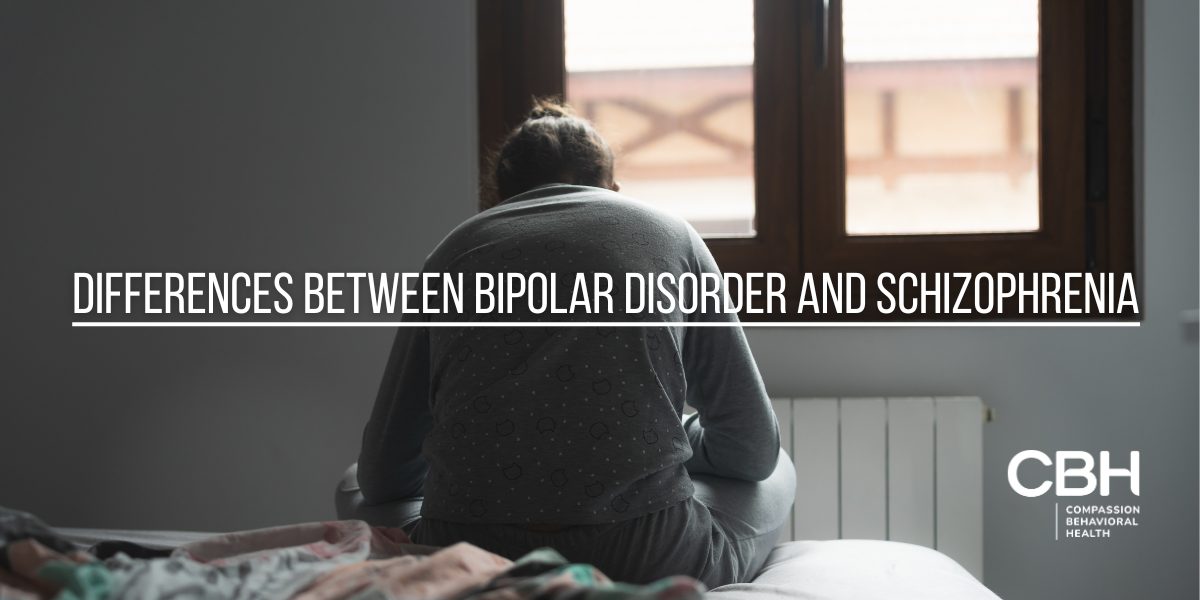5 Signs You May Be Experiencing Benzo Withdrawal
Benzodiazepines, a class of sedative prescription medications, are commonly used to treat conditions such as anxiety, insomnia, seizures, and muscle spasms. These medications work by enhancing the effects of gamma-aminobutyric acid (GABA), a neurotransmitter that helps calm the brain and nervous system. Despite their effectiveness, benzodiazepines can cause dependence and withdrawal symptoms if used for a prolonged period.
Understanding Benzos and Withdrawal
Before delving deeper into the signs of benzo withdrawal, it is essential to understand how benzodiazepines work and how withdrawal occurs.
What are Benzodiazepines?
Benzodiazepines, also known as benzos, are a class of psychoactive drugs that can be classified into four groups: short-acting, medium-acting, long-acting, and ultra-long-acting. Examples of benzodiazepines include xanax, diazepam, alprazolam, lorazepam, clonazepam, and temazepam.
Benzodiazepines work by enhancing the activity of a neurotransmitter in the brain called GABA. GABA is responsible for reducing the activity of neurons in the brain, which helps to calm the nervous system. By enhancing GABA activity, benzodiazepines can produce a range of effects, including sedation, relaxation, and muscle relaxation.
How Benzos Withdrawal Occurs
When someone takes benzodiazepines for an extended period, their body and brain become accustomed to the presence of the drug. The brain adjusts its chemistry to accommodate the drug, and the body becomes reliant on the drug for normal function.
As a result, when someone stops taking benzodiazepines abruptly or significantly reduces their dose, their brain and body may not function the way they used to. This change in function can cause a wide range of symptoms, collectively known as benzodiazepine withdrawal syndrome.
The symptoms of benzodiazepine withdrawal can vary depending on several factors, including the individual’s history of benzodiazepine use, the dose and duration of use, and the method of discontinuation. Some common symptoms of benzodiazepine withdrawal include anxiety, insomnia, irritability, tremors, sweating, nausea, and seizures.
It is important to note that benzodiazepine withdrawal can be dangerous and should be managed by a healthcare professional. Abruptly stopping benzodiazepines can lead to seizures and other life-threatening complications. Therefore, it is essential to seek medical attention if you are considering discontinuing benzodiazepines.
In conclusion, benzodiazepines are a class of psychoactive drugs that can produce a range of effects, including sedation, relaxation, and muscle relaxation. When someone takes benzodiazepines for an extended period, their body and brain become accustomed to the presence of the drug, and withdrawal can occur when they stop taking the drug. If you are considering discontinuing benzodiazepines, it is important to seek medical attention to manage withdrawal safely.
Sign 1: Increased Anxiety and Panic Attacks
The most common sign of benzodiazepine withdrawal is heightened anxiety and panic attacks. However, the severity and duration of these symptoms may vary from person to person.
Recognizing Heightened Anxiety
During benzodiazepine withdrawal, an individual may experience increased anxiety, trouble sleeping, excessive worry, and feeling on edge. They may also experience physical symptoms such as sweating, trembling, and heart palpitations. These symptoms can be overwhelming and may interfere with daily activities.
It is important to note that anxiety is a normal and necessary response to stress. However, during benzodiazepine withdrawal, anxiety may be heightened due to the brain’s dependence on the drug. This is because benzodiazepines work by enhancing the effects of a neurotransmitter called GABA, which helps to calm the brain and reduce anxiety.
Managing Panic Attacks during Withdrawal
To manage panic attacks during benzodiazepine withdrawal, individuals can engage in relaxation techniques and stress management. These techniques may include deep breathing exercises, progressive muscle relaxation, visualization, and mindfulness. It is important to find a technique that works best for each individual.
Additionally, support from family, friends, or a therapist can be helpful during this time. Support groups can also provide a safe and non-judgmental space to share experiences and learn from others going through similar challenges.
Medication-assisted treatment may also be an option for some individuals. This involves the use of medications to help manage withdrawal symptoms and reduce the risk of relapse. However, it is important to work closely with a healthcare provider to determine the best course of treatment.
Overall, managing anxiety and panic attacks during benzodiazepine withdrawal requires a combination of self-care, support, and professional guidance. With the right tools and resources, individuals can successfully navigate this challenging time and move towards long-term recovery.
Sign 2: Insomnia and Sleep Disturbances
Another common sign of benzodiazepine withdrawal is insomnia and sleep disturbances. This can be a particularly frustrating symptom to deal with, as it can lead to a vicious cycle of fatigue and anxiety.
The Connection between Benzodiazepines and Sleep
Benzodiazepines are commonly prescribed to help individuals fall asleep and stay asleep. However, these medications can also disrupt the natural sleep cycle and cause drowsiness during the day. This is because benzodiazepines work by enhancing the activity of a neurotransmitter called gamma-aminobutyric acid (GABA), which slows down brain activity and induces relaxation.
During withdrawal, individuals may experience rebound insomnia, which is the inability to fall asleep or stay asleep despite feeling exhausted. This is because the brain has become accustomed to the presence of benzodiazepines and has adjusted its activity accordingly. When the medication is suddenly removed, the brain may struggle to regulate its own sleep-wake cycle.
Tips for Improving Sleep during Withdrawal
Improving sleep during benzos withdrawal can be a challenging process, but there are several strategies that may help. One of the most important is to engage in good sleep hygiene practices. This includes avoiding caffeine and alcohol, establishing a regular sleep schedule, and creating a conducive sleep environment.
Individuals may also benefit from cognitive-behavioral therapy approaches, such as stimulus control and sleep restriction. Stimulus control involves changing the sleep environment to promote relaxation and reduce anxiety, while sleep restriction involves limiting the amount of time spent in bed to increase sleep efficiency.
It is important to note that improving sleep during benzodiazepine withdrawal may take time and patience. It is also important to work closely with a healthcare provider to develop a comprehensive treatment plan that addresses all aspects of benzodiazepine withdrawal.
Sign 3: Physical Symptoms and Discomfort
Benzos withdrawal can also cause physical symptoms and discomfort. These symptoms can be extremely uncomfortable and can make it difficult for individuals to function in their daily lives. It is important to be aware of these symptoms and to seek medical help if they become severe.
Common Physical Withdrawal Symptoms
The physical symptoms of benzodiazepine withdrawal can vary depending on the individual and the type of benzodiazepine used. Some individuals may experience mild symptoms while others may experience more severe symptoms. Common symptoms include muscle tension, tremors, headaches, digestive issues, and heart palpitations. These symptoms can be extremely uncomfortable and can make it difficult for individuals to function in their daily lives.
Individuals may also experience other physical symptoms such as sweating, dizziness, and fatigue. These symptoms can be particularly difficult to cope with and can make it difficult for individuals to engage in daily activities.
Coping Strategies for Physical Discomfort
To cope with physical discomfort during benzodiazepine withdrawal, individuals may benefit from engaging in relaxation exercises, massage therapy, and physical activity such as yoga or swimming. These activities can help to reduce muscle tension and promote relaxation, which can help to alleviate some of the physical symptoms of benzodiazepine withdrawal.
In addition to these strategies, individuals may also benefit from taking over-the-counter pain relievers such as acetaminophen or ibuprofen. These medications can help to reduce headaches and muscle pain, which are common physical symptoms of benzodiazepine withdrawal.
It is important for individuals to talk to their healthcare provider about their symptoms and to develop a plan for managing physical discomfort during benzodiazepine withdrawal. With the right support and treatment, individuals can successfully manage the physical symptoms of withdrawal and move toward benzodiazepine addiction recovery.
Sign 4: Cognitive and Emotional Changes
Benzodiazepine withdrawal can also cause cognitive and emotional changes.
Memory and Concentration Issues
During benzodiazepine withdrawal, individuals may experience memory and concentration issues. They may find it difficult to focus on tasks, recall information, or multitask.
Mood Swings and Irritability
Individuals undergoing benzodiazepine withdrawal may also experience mood swings, irritability, and agitation. They may feel easily frustrated, angry, or sad.
Sign 5: Seizures
In severe cases, benzodiazepine withdrawal can lead to seizures, a medical emergency that requires immediate attention.
Not everyone who undergoes benzodiazepine withdrawal will experience seizures. However, individuals who have a history of seizures or have used high doses of benzodiazepines for an extended period may be at higher risk.
Managing Seizures during Withdrawal
If a person experiences a seizure during benzodiazepine withdrawal, they should seek immediate medical attention. Medical professionals may administer anti-seizure medication and provide measures to prevent further seizures.
Help From Benzos Withdrawal Is Within Reach In South Florida
Substance abuse treatment is within reach for yourself or a loved one who may be using benzos.
At Compassion Behavioral Health, our team provides substance abuse treatment, including benzodiazepine addiction treatment, to individuals throughout the United States from our beautiful South Florida Addiction Recovery center. To learn more, reach out to us directly at (844) 999-0874.



